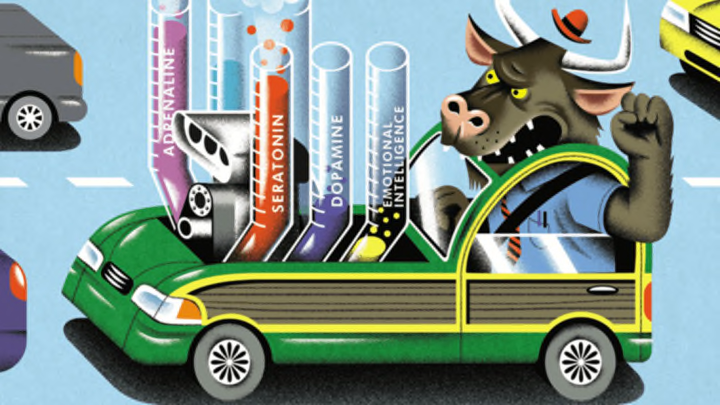This Is Your Brain on Road Rage
By the mag

Road rage is hardly a new phenomenon. In fact, Britain’s first speeding laws were enacted in the early 19th century to stop horse-drawn carriages from “furious driving.” But what is it about roads that turn law-abiding Jekylls into bird-flipping Mr. Hydes?
It starts with the stress triggers: Highways are full of heavy traffic, hidden cops, and student drivers, all of which prime your body’s fight-or-flight response. When some bozo cuts you off, cortisol rushes through your bloodstream and sends your blood pressure rocketing. A kick of adrenaline heightens the aggression. Serotonin, a mood-regulator, also drops, while dopamine levels burst through the roof. That imbalance makes your emotional intelligence plummet. And since you’re trapped in a car the whole time, “flight” really isn’t an option. So you “fight.” (It doesn’t help that nearly 16 million Americans will suffer from a syndrome known as intermittent explosive disorder [IED] sometime in their life, making them even more vulnerable to uncontrollable outbursts.)
But that isn’t all. Studies of both rats and humans suggest that we may be hardwired to act more aggressively in crowds and get pleasure from releasing that steam. Plus, psychologists note that congested roads enhance our sense of anonymity and lower self-awareness. The result? Our inhibitions fly out the window, and the highway becomes the equivalent of an Internet forum full of trolls and grumpy bloggers.
This story originally appeared in mental_floss magazine. Subscribe to our print edition here, and our iPad edition here.